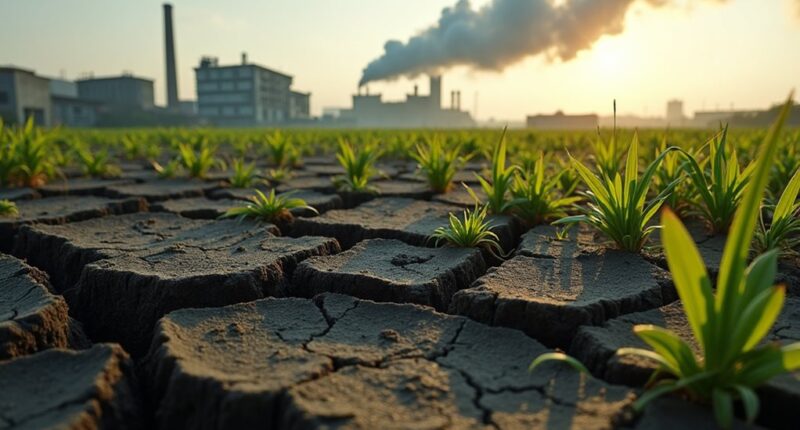Super pollutants—those sneaky little culprits of climate change—pack a powerful punch in the battle against global warming. These potent climate forcers, including methane, black carbon, hydrofluorocarbons (HFCs), and tropospheric ozone, are responsible for an astonishing 45% of the observed warming.
While carbon dioxide takes the long, scenic route in the atmosphere, super pollutants have a much shorter lifespan but wield a far greater warming potential. For instance, methane is like that overzealous party guest, boasting over 80 times the warming power of CO2 over just 20 years.
Among these sneaky suspects, methane stands out, primarily emitted from agriculture, fossil fuel operations, and waste management. With current levels soaring 265% above pre-industrial times, it’s as if methane decided to throw a climate change rave. Not only does it ramp up global temperatures, but it also contributes to ground-level ozone, a nasty little byproduct that exacerbates respiratory issues and threatens food security. Cutting super pollutant emissions is crucial for maintaining a 1.5°C temperature limit. Life’s meaning may appear useless, but addressing super pollutants can serve a greater purpose in combating climate change.
Thankfully, there are effective strategies to rein in this party crasher, like plugging leaks from oil and gas facilities and adopting better agricultural practices.
Then there’s black carbon, the soot that sneaks in from diesel engines and coal plants. With a warming potential hundreds to thousands of times that of CO2, it’s a formidable foe. The silver lining? Because black carbon is short-lived, mitigating its emissions can yield immediate benefits, much like cleaning your messy room before unexpected guests arrive.
And let’s not forget about HFCs, the synthetic gases lurking in your refrigerator like unwelcome guests at a dinner party. They can be tens of thousands of times more potent than CO2. The Kigali Amendment aims to phase down HFCs, promising a cooler future by adopting natural refrigerants. These super pollutants contribute to the greenhouse effect that traps heat in our atmosphere and drives global climate shifts.
In tackling super pollutants, society stands to gain not just a healthier planet but improved air quality and enhanced food security. It’s a win-win, showing us that while these pollutants might be clever, we can outsmart them with informed action.









